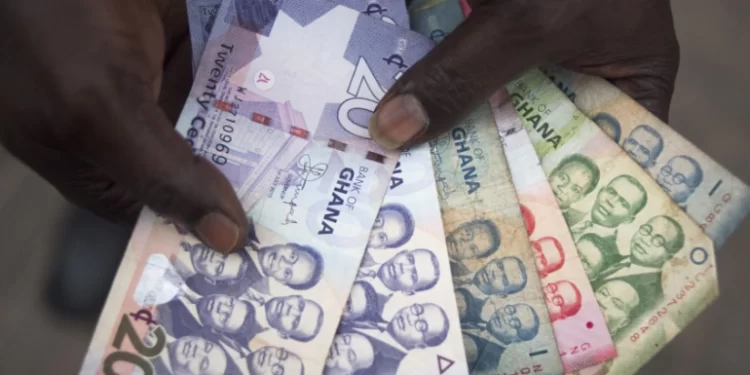The currency of Ghana has depreciated by a whopping 72 percent against the US dollar since the beginning of the year 2022.
This steady decline in the value of the cedi is having negative implications on the purchasing power of Ghanaians. At the recently conducted meeting of the monetary policy committee of the Bank of Ghana, the interest rate was hiked by 250 basis points to 24.5 percent, as the bank recognizes that the sustained inflation is mainly from the pass-through effects of the country’s currency depreciation.
As of this writing, the exchange rate between cedi and dollar stands at GHS10.55/US$1. This is having an adverse implication for business as weakening cedi means increasing costs, particularly for businesses requiring dollars to purchase production input.
The depreciating cedi is seriously feeding inflation in the country and having implications for the macroeconomic space. Inflation raced to 33.9 percent in August with inflation expectations by consumers, business, and financial sectors suggesting an upward trend in the country.
Given the weakened currency in Ghana, there is the possibility of increasing stress in the country’s sovereign debt space. As the US dollar becomes stronger relative to the cedi, the repayment of public debt in the country becomes more expensive (in cedi terms). According to data from Ghana’s central bank, total public debt as of June 2022 was $54.4 billion (78.3% of GDP) from US$32.3 billion (55.5% of GDP) in 2017. This decomposes into US$28.1 billion (40.5% of GDP) external debt and US$26.3 billion (37.8% of GDP) domestic debt.
This state can hamper the country’s ability to receive the assistance it seeks from the International Monetary Fund (IMF). This is because the IMF will not lend to countries with unsustainable debts until they restructure their debt to restore their financial sustainability.
Considering that the cedi has depreciated significantly, the repayment of the external debt will become more expensive in terms of the domestic currency.
The weak cedi will also weigh on trade in Ghana. This is because the dollar dominates international transactions. For major commodities like oil which is sold in dollars, there will be a direct increase in the amount required for purchasing these items.











